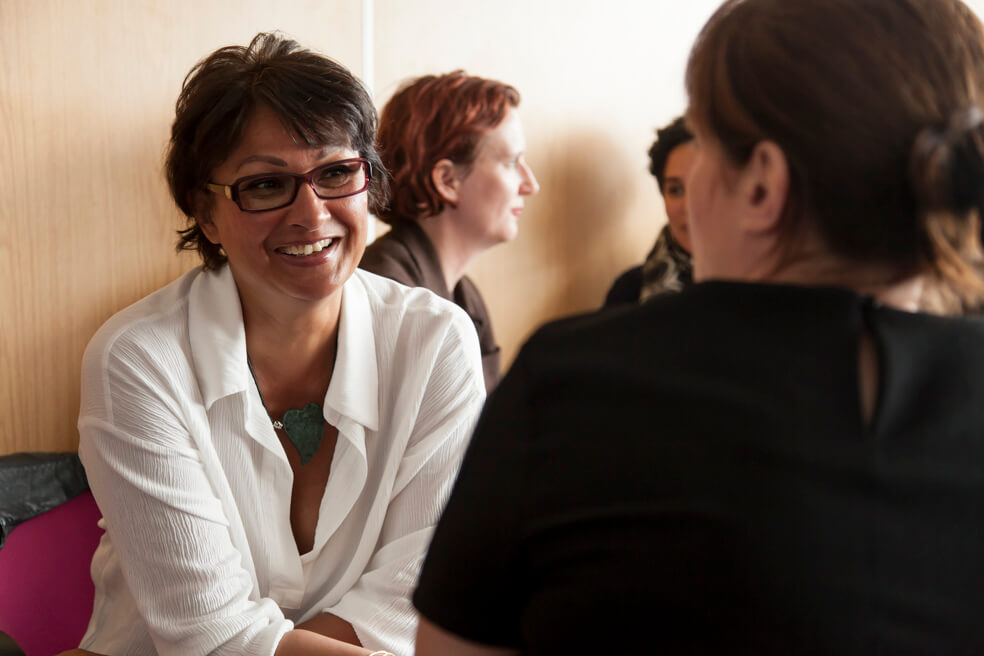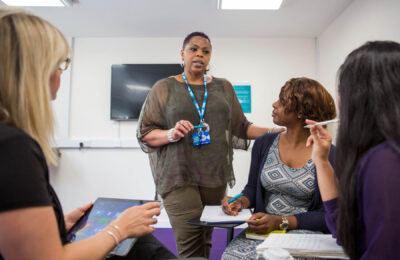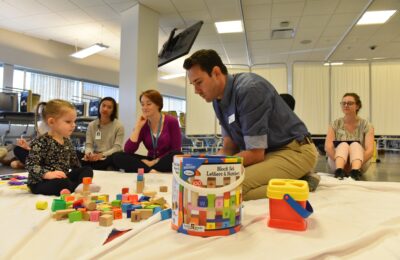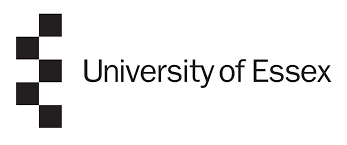
Psychoanalytic studies (M16)
Join the UK’s first psychoanalytic studies course with deep roots in the British School of Psychoanalysis
This is the UK’s first psychoanalytic studies course with strong links in the British School of Psychoanalysis and the Tavistock model of infant and young child observation. The emphasis of this creative course is on learning from experience. You will be encouraged to use your own emotional responses and cultural knowledge, as well as the learnt theory, to help make sense of the ideas that you will be studying.
The course has a proud history of welcoming overseas students from a range of professional backgrounds, and re-extends its welcome to Black, Asian and Minority Ethnic, LGBTQI+ and other minority members whose lived experiences enrich the use of psychoanalysis as a tool to understand any object of study.
Students can achieve a Postgraduate Diploma after one year, or undertake the full two years of study (including a dissertation in the second year) and graduate from with a Master’s degree.
Please note: you may see the M16 course also referred to as PAMATP005 in communications from our application system.
About this course
Alongside the in-depth study of the origin and development of psychoanalytic concepts you will learn through observation and explore the application of psychoanalysis to aspects of contemporary culture and society, including to the culture of psychoanalysis itself.
The course consists of three strands:
- observation
- psychoanalytic theory
- psychoanalytic theory as a mode of enquiry into culture and society
Observation
You will observe an infant or a young child at home or in a nursery setting and attend a small weekly seminar led by an experienced child psychotherapist. Infant observation allows for the detailed study of the unconscious processes that shape a baby or young child’s personality as they develop within the varied context of family or nursery relationships, and in the context of the different communities around each family.
It is an important aspect of an initial psychoanalytic education and provides a context in which psychoanalytic ideas become connected to human experience, engaging students’ emotions as well as minds.
Please note that it is your responsibility, and an important aspect of the module learning aims and objectives, to arrange this observation. You will be given guidance and support with this task during seminars and tutorials as needed.
Psychoanalytic theory
You will study the origin and development of fundamental concepts in psychoanalysis through Freud and Klein, as well as Bion, Winnicott, theoretical papers about sexuality and the post-Kleinians.
Senior psychotherapists and analysts will use their clinical experience to bring psychoanalytic ideas and methods to life. The approach to learning is through the close study of the primary psychoanalytic texts and this will provide you with a substantial first-hand foundation for further psychoanalytic study and its broader applications.
Psychoanalytic theory as a mode of enquiry into culture and society
You will explore the application of psychoanalytic ideas to art, film, narratives of self, music and the social and political applications of psychoanalysis, as well as to your specific interests in these fields.
Alongside examination of how a psychoanalytic perspective can enrich our understanding of the cultural wealth in diversity and difference, the module will also encourage the application of contemporary and historical psychoanalytic concepts to better understand and engage with the challenges to inclusive, anti-discriminatory learning about human development, including those associated with the culture of psychoanalysis itself.
Young child observation
You will observe a pre-school child in their family or nursery setting to learn about the emotional meaning of a child’s behaviour as they start to relate to others outside the family.
Please note that it is your responsibility, and again, part of your learning task, to arrange this observation, but you will be given guidance and support as needed during seminars and in tutorials.
Dissertation
The aim of the dissertation (12,000-14,000 words) is to develop an application of psychoanalytic ideas and approaches to a subject of interest. Some students’ dissertations have been revised to become published articles and several former students have gone on to publish books.
Here are some titles of successfully completed dissertations:
- The Maison Verte: a Transitional Space. An introduction to the work of Françoise Dolto
- The Psychodynamics of an Émigré Family Business: Intergenerational Creativity and Survival
- A Psychoanalytical Investigation into the Sense of Home in the Poetry of John Clare
- Beguiling the Hours: Psychoanalytic Perspectives on Boredom
- (Dis)integration in a Foreign Land: Psychoanalytic Explorations of Migration
- O My Days! A Psychoanalytic Approach to the Language of British Young Offenders in the 21st Century
- Peace and Terror: Psychoanalytic concepts of psychosis and George Mitchell’s management of the Northern Ireland peace process
- The beginning of the end of an affair? An exploration of psychoanalytic and psychiatric models of the mind in two cases of psychosis
- The Death Instinct in the work of Ibsen (based on ‘Hedda Gabler’ and ‘The Master Builder’)
- David Hockney: the Recovery of the Lost Loved Object
If you pass an additional interview, you may also attend clinical workshops and seminars. You can choose the workshops and seminars according to your interest and experience, but this additional programme may not be suitable for everyone. Please note that this is a bespoke part of the programme and fees are available on request.
Modules
Module 1: Infant/Young Child Observations 1 (PA7001)
- Year of Study: Year One
- FHEQ Level: Level 7
- Credit Weighting: 20 credits
- Module Status: Core
- Module Leader: Felicity Tyson
Module Aims
- To help students to learn directly from experience about human development and interactions and the deeper dynamics within their observational setting and the settings of other students in their seminar group, paying attention to cultural differences between the observer and the observed family, and exploring the impact of these differences on the observation and how it is experienced.
- To develop students understanding of the psychoanalytic observational method through direct experience of observing an infant/young child and through seminar discussion.
- To help students to enhance their receptivity to the emotional development of infants/young children within a range of settings.
- To enhance students’ capacity to describe in fine detail the behaviour and interactions of the baby (or young child) with the main carer and family members, including paying attention to the minutiae of facial expression, tone of voice and style of movement
- To enhance students’ skills and capacity as an observer of interactions in their chosen setting and to establish the student’s role as observer within this setting, developing the capacity to remain attentive and to refrain from giving advice or actively intervening.
- To equip students to make links between the use of the psychoanalytic observational method and other modules on the course.
Module Assessment
Students are required to submit an infant observation portfolio, comprising of three observations of 1500 words each, with brief introductory and linking paragraphs of 750 words.
Module 2: Psychoanalytic Theory 1 (PA7002)
- Year of Study: Year One
- FHEQ Level: Level 7
- Credit Weighting: 20 credits
- Module Status: Core
- Module Leader: Felicity Tyson
Module Aims
- To gain a detailed, chronological knowledge of the key works of psychoanalytic literature from Freud (two terms) and Klein (one term). To give students opportunities for both didactic and experiential learning in relation to psychoanalytic theory.
- To gain an in-depth knowledge of fundamental psychoanalytic concepts including their origin and development and their value for contemporary thinking, both clinical and theoretical.
- To develop critical thinking skills in relation to the concepts under discussion.
- To have the foundations to be able to trace the development of classical theory into the contemporary era.
- To equip students with the critical and analytic skills necessary to understand and elaborate upon different perspectives within the field of psychoanalysis.
Module Assessment
Students are required to submit a 3500-word psychoanalytic theory paper, choosing from a selection of titles provided.
Module 3: Applications 1 (PA7003)
- Year of Study: Year One
- FHEQ Level: Level 7
- Credit Weighting: 20 credits
- Module Status: Core
- Module Leader: Felicity Tyson
Module Aims
- To develop a detailed knowledge of the field of psychoanalytic studies
- To develop an understanding of how psychoanalytic concepts can be applied to non-clinical settings
- To develop an understanding the relevance of theory to various applications of psychoanalysis.
Module Assessment
Students are required to submit a 3500-word applications paper.
Module 4: Infant and Young Child Observation 2 (PA7004)
- Year of Study: Year Two
- FHEQ Level: Level 7
- Credit Weighting: 20 credits
- Module Status: Core
- Module Leader: Dexter Benjamin
Module Aims
- This module builds on the learning from Year One observation: To continue to learn directly from experience about human development and interactions and the deeper dynamics within the student’s observational setting and the settings of other students in their seminar group.
- To continue to develop understanding of the psychoanalytic observational method through direct experience of observing an infant/young child/institution and through seminar discussion.
- To continue to enhance receptivity to the emotional development of infants/young children within a range of settings, taking into account issues of sameness and difference between observer and observed family, and developing the capacity to describe their importance and impact within the observational narrative.
- To consolidate skills and capacities as an observer of interactions in the students chosen setting and of themselves in the role of observer.
- To equip students to make links between the use of the psychoanalytic observational method and other modules on the course.
Module Assessment
Students are required to submit an infant observation paper of 3500 words, plus ancillary material of up to 1000 words.
Module 5: Psychoanalytic Theory 2 (PA7005)
- Year of Study: Year Two
- FHEQ Level: Level 7
- Credit Weighting: 20 credits
- Module Status: Core
- Module Leader: Dexter Benjamin
Module Aims
- To be able to trace the development of classical theory into the contemporary era focusing on the developments within the British School of Psychoanalysis.
- To be equipped with the critical and analytic skills necessary to understand and elaborate upon different perspectives within the field of psychoanalysis
- To understand the relevance of theory to various applications of psychoanalysis.
- To be able to apply psychoanalytic theory to other modules on the course.
Module Assessment
Students are required to submit a 3500-word psychoanalytic theory paper, choosing from a selection of titles provided.
Module 6: Applications 2 (PA7006)
- Year of Study: Year Two
- FHEQ Level: Level 7
- Credit Weighting: 20 credits
- Module Status: Core
- Module Leader: Dexter Benjamin
Module Aims
- To have acquired a detailed knowledge of the field of psychoanalytic studies.
- To develop an advanced understanding of how psychoanalytic concepts can be applied to non-clinical settings for example in music, poetry and autobiography.
- To develop new approaches to psychoanalytic questions in an interdisciplinary framework i.e. to identify what social scientists and critical theorists might contribute to psychoanalytic discussion as well as what psychoanalysis might have to offer.
Module Assessment
Students are required to submit a 3500-word applications paper.
Module 7: Dissertation (PA7007)
- Year of Study: Year Three
- FHEQ Level: Level 7
- Credit Weighting: 60 credits
- Module Status: Core
- Module Leaders: Michael Rustin and Anshu Srivastava
Module Aims
- To facilitate the production of a well written, well-structured and realistic formative assessment proposal on a subject of the student’s choice but which reflects learning from different parts of the course, which is used as a basis to write a dissertation of between 12000-14000 words.
- To participate in the formulation of other students proposals (dissertation proposal seminars).
- To foster an advanced capacity for independent learning.
Module Assessment
Students are required to submit a 14000-word dissertation.
Who is this course for?
This is a rewarding course for anyone interested in learning about psychoanalytic ideas and their application to the arts, politics, and literature. You may do this course out of general interest, be considering future clinical training or already be a practising clinician who wants to inform your professional practice.
This course serves as an excellent intermediary pathway for those unsure about whether they would like to work with children or adults, for example on our Foundations of psychodynamic psychotherapy (D58) or Child and adolescent psychoanalytic psychotherapy (M80) courses.
We have welcomed students from a variety of backgrounds including law, medicine, the arts and journalism. Many have taken this course to gain a substantial and wide-ranging introduction to psychoanalysis and its applications.
Course details
In order to undertake this course, we ask that you have a degree or other qualification of equivalent level.
We also welcome your application if you do not have a standard educational background, or if you are currently engaged in, or wish to pursue, academic study rather than related professional work.
Home
£9,220 per year (2025/26)
International
£18,440 per year (2025/26)
You will be charged course fees for each year of your course. If your course is longer than one year, the fees that you will be charged after the first year will be subject to an annual uplift, which is not normally expected to exceed 6% or the Consumer Price Index (as stated on 01 September of that academic year) if higher than 6%. At its discretion and in rare instances, the Trust may determine a figure greater than either, to reflect costs associated with the activity (e.g. assessment, teaching, administration etc.), which shall not exceed 10%. Please refer to our Terms and Conditions, and Student Fees & Refund Policy for further information.
Financial support may be available to help you fund your studies at the Tavistock and Portman NHS Foundation Trust.
Assessment
The course is assessed with the submission of written essays for each module. You will also submit, in the first year, a portfolio of observations for the infant observation module.
Attendance
Tuesdays from 2:00pm to 7:30pm (with a fortnightly 12:30pm start in the spring term) and Wednesdays from 3:45pm to 6:15pm.
Please note that you will also need to set aside between 2 and 4 hours each week for observation of an infant or young child, and the writing up of those observations, for the duration of the course. It is your responsibility to arrange this observation, but you will be given guidance and support with this task as needed during seminars and in tutorials.
Please note: Students can achieve a Postgraduate Diploma after one year, or undertake the full two years of study (including a dissertation in the second year) and graduate with a Master’s degree.
Many graduates of this course have:
- gone on to further clinical training as adult or child and adolescent psychoanalytic psychotherapists, or other psychological therapeutic trainings (about 60% follow this path)
- used the learning to develop their existing clinical profession, often as psychiatrists, clinical psychologists, counsellors
- gone on to doctoral level research in related fields of psychoanalysis and its clinical and cultural applications
Some graduates of our Foundations of psychodynamic psychotherapy (D58) or Child and adolescent psychoanalytic psychotherapy (M80) courses have studied this course as an intermediary pathway if they were unsure about whether they would like to work with children or adults.
Application support and deadlines
Interested in this course but have questions before applying? Book a 1-1 session with an admissions advisor to find out more.
There are a number of important application deadlines associated with our postgraduate courses, however we encourage you to apply as early as possible, as spaces on our courses are limited and can be competitive.
Monday 30 June 2025: International applicant student visa deadline
Thursday 31 July 2025: UK, Irish and non-student visa applicants
Why study with us?
This world renowned course has been running for over 20 years and will equip you with an in-depth understanding of psychoanalytic theory and its potential applications to other fields.
It will enable you to make links between theory and your own experience of watching unconscious processes unfold by undertaking an observation of a baby or young child. Crucially, it will offer you the opportunity to think about how an understanding of emotional states can contribute to our understanding of culture and society.
You will also benefit from being taught by senior clinicians as well as academics who have developed particular interest in the applications of psychoanalysis to culture and society over a minimum of three seminars a week during term time (six seminars a week for full-time students). You will have the use of an extensive library which is used by all students and staff, and you can also join clinical seminars or workshops in a programme called ‘Psychoanalysis in practice’.
The emphasis of this creative course is on learning from experience, and you will be encouraged to use your own emotional responses, as well as theory, to help you make sense of the ideas that you will be studying. You will have a generous amount of time with your tutors, many of whom are practicing clinicians.
Testimonials
Course facilitators
Validations
This course is validated by the University of Essex.
Apply now
Start your application for this course.
Recommended courses
Explore courses to study beforehand
-
 Trust certificate
Trust certificate 
Introduction to counselling and psychotherapy (D12)
- Graduate diplomaEligible for Student Visa

Emotional care of babies, children, young people and families (EC1)
-
 Trust certificate
Trust certificate 
Psychodynamic reflective practice in mental health (D65)
Explore courses to study next
-
 Master’s Eligible for Student Visa
Master’s Eligible for Student Visa
Perinatal, child, adolescent and family work: a psychoanalytic observational approach (M7, daytime)
-
 Master’s Eligible for Student Visa
Master’s Eligible for Student Visa
Psychodynamic psychotherapy (M58)
-
 Master’s
Master’s 
Psychodynamic psychotherapy (BM58, evening)
